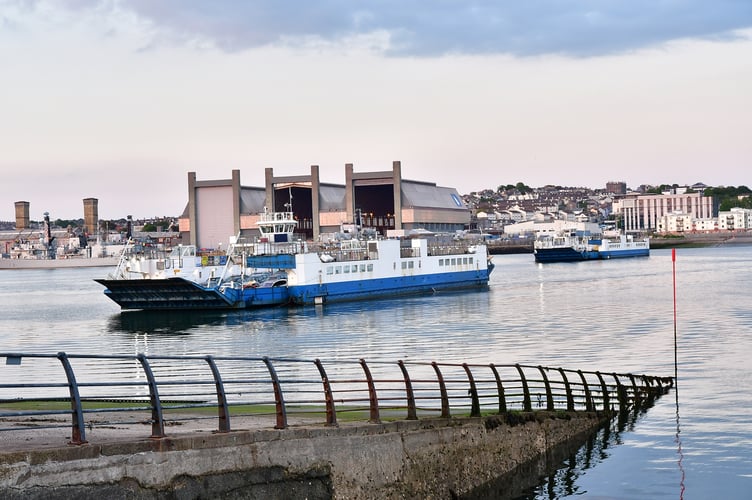IN a landmark move for Britain’s maritime industry, the world’s busiest chain ferry service is setting out to eliminate fossil fuels altogether.
The Torpoint “Bridge to Zero” project will deliver the UK’s first fully costed, engineering-ready plan to power the Torpoint Ferry fleet entirely with green, shore-supplied electricity – a breakthrough that could redefine short-sea crossings across the globe.
Carrying over three million vehicles and 400,000 pedestrians each year between Torpoint and Devonport, the ferries are a lifeline for local communities and a critical artery for the South West economy.
Operating 24/7 in all weather, the service faces some of the toughest technical conditions in the maritime world, yet it’s about to prove that even the most demanding ferry operations can go fully zero-emission.
Backed by the Department for Transport through the UK Shipping Office for Reducing Emissions (UK SHORE) and its Clean Maritime Demonstration Competition (CMDC), the £300,000 project aims to cut up to 1,000 tonnes of CO₂ emissions annually.
Maritime minister Keir Mather hailed the initiative saying: “Our £300,000 investment into Torpoint Ferry will be transformational in the region as we chart a course to net zero shipping by 2050 and build a cleaner, greener future.
“This comes as part of our wider commitment to decarbonise shipping backed by a £448-million investment to clean up sea travel whilst supporting jobs and boosting growth across the UK.”
The project brings together Marine Zero, Tamar Crossings and the University of Plymouth.
Launching as the International Maritime Organisation’s Marine Environment Protection Committee, the project aligns with growing global pressure to accelerate zero-emission technologies.
Tim Munn, managing director at Marine Zero, said Torpoint is proving what was once thought impossible: “With Torpoint, we’re proving that even the most demanding 24/7 maritime operations can transition to zero emissions. Our goal is to create solutions that are not just technically feasible, but financially viable and scalable – safeguarding a vital regional service whilst setting a global example for short sea shipping.”
Philip Robinson, chief officer at Tamar Crossings, said the project will help secure the service’s long-term sustainability: “This is about protecting a vital public service and investing in the future. By solving the challenges here, we can help ferry operators across the UK – and beyond – transition to cleaner, more resilient fleets.”
The University of Plymouth will provide independent research to measure performance and shape future vessel designs.
Sarah Fear, marine and low carbon sector lead, added: “This project advances the world-leading reputation for clean maritime research, operational expertise and innovation in Plymouth and South East Cornwall.
“By capturing and analysing detailed performance data, we will generate evidence-based solutions that can be applied to the Torpoint Ferries – and to other ferry routes in the UK and globally – that are facing similar constraints.”
The “Bridge to Zero” project is not just a local environmental initiative, it’s a national testbed for the next generation of clean maritime transport. If successful, it will set a new global standard for decarbonising short-sea crossings, turning the River Tamar into a beacon of green innovation.





Comments
This article has no comments yet. Be the first to leave a comment.